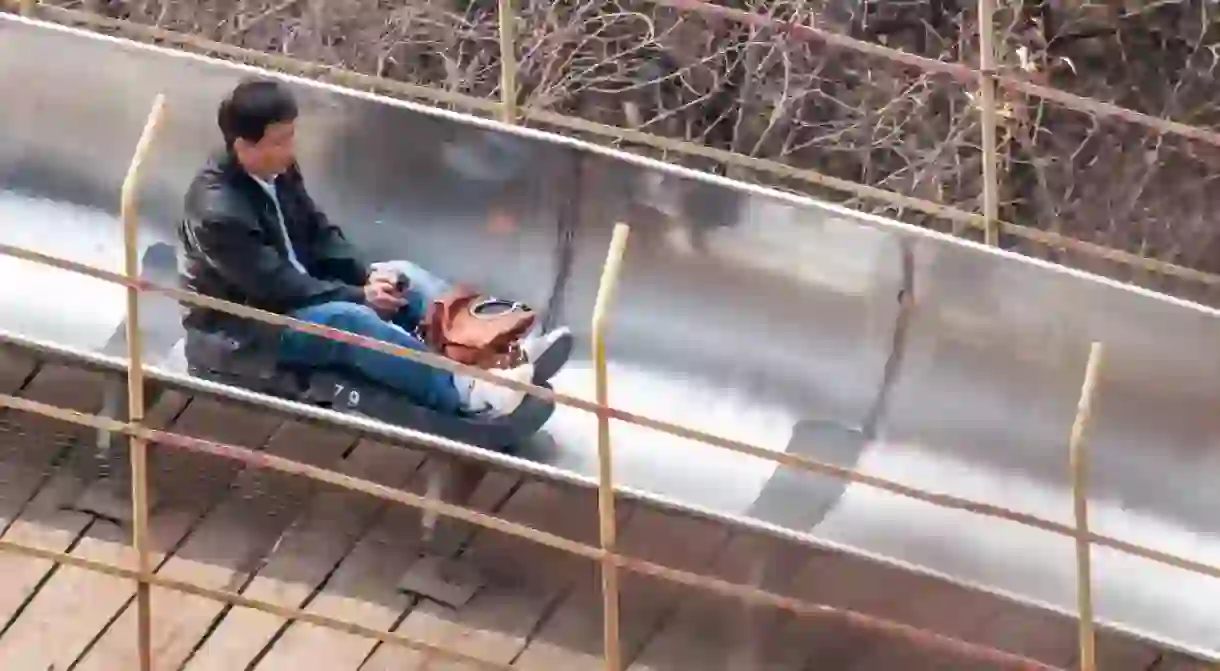Toboggan Down the Great Wall of China

At 5,000 miles (8,047 kilometres) long, it would take you 18 months to walk this Wonder of the World – or you can slide down the Great Wall of China in around two minutes, depending on how much you brake.
At Mutianyu, a well-preserved stretch of the Great Wall 90km (56mi) north of Beijing, a toboggan run descends from the top of the wall, covering 1.6km (1mi) and taking in valley views and winding sections through the forest.
You’re in control of the brake, and if you choose, you can take it at a rattling pace, as trees whip by and the wind rushes past your face (helpful signs remind you to ‘slow down’ at corners). It may not have been what the Ming dynasty planned when they built this great fortification, but it’ll get your blood pumping.
Head to the Great Wall and see the wonder of the world with these fascinating tours.

Visiting Mutianyu
Mutianyu is a good place to get a sense of the Great Wall. It’s quieter than some other sections, but is still well set up for visitors, with a cable car, chair lift and shuttle buses to ferry people to the fortification itself, plus a good number of places to eat. A walk along the wall offers close-up views of watchtowers and lovely mountain vistas.
You can do the trip in a day via public buses from Beijing, or take an organized tour. Be aware that the Wall gets hot in mid-summer and very cold in winter, when temperatures can be well below freezing.
Visit Mutianyu with these amazing tours to that section of the Great Wall.

Other Ways to See the Wall
Mutianyu will suit many people coming from Beijing. But it’s not the closest part of the wall from China’s capital. If you’re on a tight time frame you might prefer Badaling, which has cable cars running up and down its length, but can get very crowded.
For a more off-the-beaten track experience, consider heading to Huanghua Cheng or Jiankou. These sections have not been restored and are not officially open to the public – so plan carefully, and consider taking a tour.
Explore these lesser-visited parts of the Great Wall with these Jiankou tours.














